EN
The European Parliament notes that infertility is a medical condition recognized by World Health Organization that can have severe effects such as depression; points out that infertility is on the increase and now occurs in about 15 % of couples; therefore calls on the Member States to ensure the right of couples to universal access to infertility treatment.
European Parliament resolution on the demographic future of Europe (2008)
*******
PROFILE 2011
Name in original language: Asociatia SOS Infertilitatea
Name/meaning in English: SOS Infertility Association
Country: Romania
Date of establishment: October 19, 2009
Board:3 board members (expertise in Finance, PR, Quality Assurance in Biotechnologies)
Advisory board: 7 members of the advisory board (expertise in IT, Law, Finance, Media Monitoring, Foreign languages, Political Science); all of them are representatives of patients.
Staff: 0
Volunteers: 10 active persons (permanent nucleus), ~15 volunteers thatact on a case-by-case basis, over 1,300 patients / potential volunteers registered in the electronic database.
There are no other similar organizations in Romania.
Website: www.sosinfertilitatea.org
E-mail:contact@infertilitate.com
Address: Calea Floreasca, nr. 110, 014463 Bucharest, ROMANIA
Telephone: 0040 742 80 77 83
Contact person: Mrs. Elena MICLEA, Executive Manager
Membership: 90 members registered officially
Annual fee: 1 RON (0.25€) / year for members (individuals)
Objectives:
◊ To advertise infertility and bring it on the public and political agenda in Romania
◊ Toinform infertile couples regarding medical and psychosocial aspects of their condition
◊ To assist and counsel infertile couples
◊ Toincrease the visibility of the SOS Infertilitatea Association
◊ Topersuade authorities and the political class take responsibility for initiating a legislative framework on assisted reproduction and for guaranteeing the right to access infertility treatment and introduction of IUI and IVF procedures in the national health programs.
Main activities:
Advocacy campaign to raise awareness about the infertility issue in Romania – “Infertility is a medical condition. Having a child should not be a luxury”.Participation in elaborating the ART draft law. Determining the creation of In Vitro Fertilization and Embryo-transfer Program financed by the Ministry of Health in Romania. Outstanding dissemination in the press in connection to the infertility phenomenon. Website, forum, newsletter, info flash. “SOS Infertilitatea support group” Program – psychological and emotional support for couples. “SOS Infertilitatea Library” Program–books on infertility and / or assisted reproduction, in Romanian, French or English that can be borrowed by persons concerned. “Online medical guidance” Program – 23 specialists in human assisted reproduction and connected medical areas supply medical counseling voluntarily on the association’s forum.
Regular events: SOS Infertilitatea support group – bimonthly meetings of patients affected by infertility, coordinated by a psychologist. Annual participation in the National Infertility Day, organized by the Association of Embryologists.
Financing: Annual budget in 2008 was 0 (zero). Annual budget in 2009 was about 300 €. Annual expenses in 2010 amounted to about 1500 €.
Income sources – breakdown of income
◊ Membership: ~ 1%
◊ Donations from members and volunteers: ~ 95%
◊ Sponsors: ~ 4%
Communication
◊ Means of communication: visual, written, verbal, and electronic
◊ Communication channels: television, radio, internet, print, conferences, events, social networks, direct mailing, informative collective blog www.infertilitate.com and patients’ forum http://forum.infertilitate.com
◊ Communication support – roll-up, brochures, banners, e-banners, reports, media portfolios, articles, presentations, bimonthly newsletter, info flash, press releases, postcards with pictures and messages of families that overcame infertility.
The association members and volunteers created both illustrations and promo materials pro bono.
Prizes, Awards and Participations:
◊ Silver Award for Excellence, Romanian PR Awards, 2010
◊ Award – Public Participation Gala, 2010
◊ Nominee at Gala Medica, 2010
◊ Winning blog – Roblogfest 2009 & 2010, “Collective Blog” category
◊ Finalist blog (top 5), Webstock 2009, “Brand/Product Blog” category
◊ Winning campaign, “Carol Davila” special prize 2009
◊ Participant in Romanian Civil Society Gala, Romanian Health Gala, Oameni pentru Oameni Gala, ONGFest.
Achievements / Challenges:
Current biggest challenge – to achieve a legal framework regarding infertility and human assisted reproduction in Romania. A draft law on ART, drafted following the initiative and with the participation of SOS Infertilitatea, is in progress under the coordination of the Health Commission – Chamber of Deputies. This draft law will enter the Parliament’s approval path in 2011.
Biggest success – until 2008, the “infertility” was a taboo subject in Romania; now, due to our actions, it is on the civil society, media, political and public agenda.
After almost three years of intense activity of our Association, for the first time in Romania the authorities believe infertility is a serious matter and an actual action program has been proposed. A national IVF program will be implemented in 2011 and 2012 and the couples that need IVF will benefit of compensation from the health insurance funds for one IVF attempt. The annual budget of this program is about 1,000,000 €. It is not enough, but it is a beginning, a huge step, especially because we started from 0 and we must not forget the financial crisis that imposed budgetary austerity. For the hypofertile couples in Romania, it is already a victory!
********
Autonomy of Choice vs. Unavailability of the Human Body[1]:
How France and Romania Deal With Bioethics
Sandrine Bretonnière
Associate Researcher CADIS-EHESS
Part-time Lecturer, Faculty of Political Sciences, University of Bucharest
France and Romania offer two substantially different frameworks regarding bioethics. In this paper, I will attempt to show that the processes at work in the elaboration of a collective response to bioethical issues are similar (although thoses responses are not), and that Romania’s history in terms of human procreation regulation strongly shapes its underlying preference for autonomy of the person (contrary to the stipulation in my first hypothesis).
As of today, the French parliament has voted two major bioethics laws (the first one in 1994, an updated version in 2004), and a second revision of this law is being prepared since 2008. The existing legal framework encompasses the definition of the state-sponsored and financed Medically assisted procreation (it also strictly regulates who can access it), it defines filiation norms for babies born as a result of MAP, it allows pre-natal and pre-implantation diagnosis (in very specific conditions), it forbids surrogacy, it forbids research on embryos, it forbids human cloning. Dignity of the human being and unavailability of the human body are the main legal principles the law refers to.
Romania offers a contrasting situation. There is no law regulating Medically assited procreation, there is no law regarding surrogacy (which is, by default, allowed), there is no law on embryo research. The law on organ transplant, as well as the legal provisions regarding aboriton, are the only existing legal frameworks in the area of bioethics. There have been attempts to legislate (most notably in 2004-2005) but the law on human reproduction was vetoed by the president and definitely rejected by the constitutional court. More recently, a law project was introduced in parliament but received a number of negative recommendations from the government, and the legal commission. A new attempt – initiated by a member of parliament who is also a member of the parliamentary health commission, with the support of a non-governmental organization and of an academic – is in progress, although still rather confidential at this point in time. All these attempts are more liberal than the French law, although some provisions are directly inspired by the French model (for instance, the conditions of access to state-sponsored assisted procreation). Surrogacy, for instance, is allowed in all the project laws that have been drafted so far. In terms of principles, autonomy of the person thus seems to have the upper hand.
Beyond these obvious discrepancies between the French and the Romanian contexts (one being totally regulated by law, the other lacking formal regulation in most respects, and being characterized by the former as a component of the procreation tourism business prejudicial to human dignity in general, and to its citizens in particular), it is useful to examine and to compare the processes at work towards the elaboration of a response – however partial – to emerging bioethics issues in those two countries. In fact, we can trace back similar steps, stages, in the history of each country’s appreciation of, and dealings with, bioethical challenges in the 1980-90s in France, from the years 2000 onwards in Romania. The difference in timing is due primarily to the fact that Romania was under Causescu’s harsh communist regime until 1989. The country was, for all intents and purposes, sealed off from the rest of the world, and from a large number of technological revolutions. I will come back to the relevance of this communist regime – and of its very particular rules on human reproductive rights – in the second part of this communication.
What are those steps leading to an articulate response to bioethical issues?
In the field of human reproduction in France, the late 1970s and early 1980s saw the emergence and the ‘mastering’ of biomedical techniques such as in vitro fertilisation. In 1982, the first IVF baby was born in Clamart hospital. By then, a number of crucial changes had taken place in terms of sexuality and procreation: the law on abortion had been passed a few years before, a law allowing divorce by mutual consent (divorcing had been practically impossible for nearly a century prior to that) was voted by parliament in 1975; and of course, contraception had been legalized in the late 60s. The restrictions on sexuality were partially lifted, the progressive separation between sexuality, procreation, and parenthood was becoming possible and acceptable. In this context, the first phase in the constitution of a bioethical framework was thus:
1. One of experimentation with no or few rules, in the face of novelty, in the face of the medical and technological promise of providing solutions to infertility. Associated with what appeared as an incredible panel of opportunities, was a feeling of general felicity in the face of technological and medical progress. Progress, synonymous of the human ability to accomplish technological wonders in modern times, reached one of its peaks.
In Romania, this phase can be identified in the years 2000. IVF were being performed in numerous clinics, access to those treatments was unregulated, donor eggs were easily accessible. Everything seemed possible.
The second phase is marked by:
2.excesses (or what are perceived as such): surrogacy in France, the birth of a baby girl to 66 year-old Adriana Iliescu in Romania. Although surrogate mothers in France originally seemed to be part of this panel of possibilities, the organizations that put them in contact with women who could not go through with a pregnancy for physiological reasons were forbidden by the courts on the grounds that surrogacy corrupted the institution of adoption because it organized abandonment of a child. On a different matter, the question of the filiation of IVF children was raised when some men contested their obligations as fathers. At least in one case, the courts cancelled a child’s filiation with his father. The stability of these children’s filiation became a crucial issue, especially in a country where ‘the superior interest of the child’ (welfare of the child) is key in the legal framework.
In Romania, a 66 year-old woman gave birth to a baby in January 2005, after a long process involving hormonal treatments and IVFs using donor eggs and sperm. Presented as one of the oldest mothers in the world, she symbolized the capacity of Romanian medicine to catch up with Western medicine.
Public outrage, or at least bewilderment, followed these new situations. The absolute and necessarily appropriate or benevolent power of medicine and of technological advances was questioned. How should progress be defined? Where should the line be drawn? By whom?
The stage that follows – the third – is that of :
3. a public debate and the progessive involvement of political actors
In France, the National Consultative Committee on Ethics had been created in 1983, and had been calling for a law to regulate the field of assisted human reproduction. Doctors were increasingly uneasy with the social dimensions of their work. As a result, a series of governmental commissions were set up, a law was drafted, put aside after parliamentary elections, a new law was initiated by Jean-François Mattei, then Minister of Health and finally voted in July 1994.
In Romania, the reactions to Adriana Iliescu’s pregnancy were two-fold. Part of the medical profession, the orthodox church, part of the commentators condemned this use of biomedical techniques and called for the state to step in. This condemnation was not unanimous, however. A number of people interviewed in the press focused on the courage of this woman who had gone through with her parental project. Rather than underlining this pregnancy’s defiance of nature’s natural processes, it was the will and the tenacity of this woman that was admired. Her choice and her reliance on science to embody her autonomy (to use Benett’s words) were the relevant terms in this matter.
Nonetheless, this case prompted the government to speed up the passing of a law on human reproduction (which specified that access to assisted procreation was reserved to heterosexual couples, that surrogacy was allowed). Presidential elections followed and the newly elected President – Traian Basescu – vetoed the law which was then sent to the Constitutional Court. It was returned to Parliament and later abandonned. The urgency had passed.
The fourth stage is that of:
4. implementation of the law
In France, the 1994 bioethics law stabilized and anchored the principles of access to assisted procreation for heterosexual couples facing infertility problems and having a solid parental project. It institutionnalized the anonymity of egg and sperm donation, masking genetic origins with the intent of making filiation irreversible, and of protecting donors. The ban on surrogacy was reiterated.
In Romania, no law was passed, and no serious attempt was made since 2004-2005 to introduce a law. Just as an example, a senator introduced a law project on human reproduction which was voted by the Senate in December 2009. In its introduction, the text mentions the fact that one couple out of 5 in Romania is facing infertility problems, and that considering the current birth rate, there will only be 16 million Romanians in 2050 (there are 20 million today). Interesting justification, to say the least.
The fifth stage is that of:
5. revision of the law
The French parliament chose to revise its bioethics law every five years (in principle) to take into account technological changes. The first review of the law left it unchanged. With the second revision (due in 2009, pushed back ever since), new challenges appeared. The issue of surrogacy resurfaced, and the anonymity of gametes donation was questionned by IVF children. Mobilization on these two fronts has been intense and has involved numerous social actors. On both issues, civil society has reached out to the media and to politicians, pushing for a revision of the law that would allow surrogacy for those women who cannot bear children, and for regulations that would give access to data about their donors to IVF children. Intellectuals, doctors have also been participating in the public debate. The philosopher Sylviane Agacinsky, and the professor René Frydman have firmly defended the ban on surrogacy, insisting on the uncomprimising principle of the unavailability of the human body. Another professor – Israel Nissand – has revised his position on surrogacy and argues for its legalization and regulation by law. A parliamentary commission auditionned more than 100 persons in its preliminary work on the revision of the law. Parallely – and for the first time – citizens’ panels were organized in different regions to discuss bioethics issues at hand. The National Consultative Committee on Ethics issued a special report on surrogacy in the spring of 2010. It supports the continued ban on surrogacy, but 7 members (out of 19) of the Committee – in a note at the end of the report – argue for a lift of the ban. A think tank linked to the Socialist Party published a report on the bioethics law, proposing to change the provisions on anonymity of gametes donation, and to render visible (in the birth certificate) the contribution of a third party.
The contributions have been numerous, the debate (particularly on surrogacy) heated, but most official bodies (from the Minister of Health to the Conseil d’Etat) lean towards maintaining the law as it is. On the issue of children born of surrogate mothers outside of France, the parliamentary commission suggests, for instance, to continue denying recognition of the mother of intent’s filiation, but to recognize the father of intent’s filiation, and recommends the couples then petition the courts for a partial delegation of parental authority (in favor of the mother of intent). The commission mentions it is discriminatory, but nonetheless proposes this sole solution – however inappropriate – be the only one favored for those children (who may have no official French papers).
For Romania, of course, this stage has still to materialize. The only recent legal provision is a decree that was promulgated by the Minister of Health in october 2009 (just before he resigned in the wake of the presidential elections of november-december 2009) regarding IVF, in reaction to the arrest of three doctors and the shutting down of the Sabyc clinic in Bucharest which orchestrated IVF for foreign women with purchased female gametes (the Romanian police intervened at the request of Interpol). Because of unfortunate wording, however, the decree suggests that IVF can solely be performed without profit – which is impossible in a country where the state does not finance this treatment process for its citizens.
I would like to now turn to the specificity of the Romanian context in terms of women’s reproductive rights, as I would argue, it shapes (at least partially) the underlying attitude to bioethical issues in assisted procreation. When Causescu came to power in 1965, he quickly passed a natality decree which effectively forbade all contraceptive methods, as well as abortion. Romanian women were to bear as many children as possible – in any case, at least four. As a result of this policy, the birth rate increased dramatically in the 1970s (which was a time of relative economic prosperity in Romania). By the late 70s, however, the birth rate started declining – that prompted further restrictions (c-sections were not allowed, unless it was determined during delivery that the woman’s life was at risk, for instance), a reinforced presence of police personnel in hospitals to verify the work of doctors, as well as the monitoring of women in the work place to check their menstrual cycles and to ensure pregnancies were detected and monitored as early as possible. Meanwhile, the 1980s were a period of dire economic straits as Causescu decided to reimburse the country’s external debt (all production was geared towards export).
The control of the regime was thus not limited to its citizens’ potentially subversive political activities (as was the case in many communist countries) but it had a very corpeal, intrusive, policy on women and their reproductive rights – which were de facto anihilated. After the fall of Causescu in December 1989, one of the first acts of the parliament was to overturn the ban on abortion. Slowly, Romanian women have regained control over their bodies and their reproductive capacities. They are now at liberty to have children or not. They usually have very few – one or two. This choice is often justified by economic constraints – and the latter are also mentionned by women who consider becoming surrogate mothers. Autonomy has replaced the communist state’s strict control of reproduction, and even the Orthodox Church is reluctant to step in. Its Bioethics committee positionned itself against abortion, but beyond this formal condemnation, the church is rather tolerant. Regarding surrogacy, the Bioethics committee has not issued any statement, but the Patriarchy’s spokeperson was quoted in a recent article as saying: «“we cannot take position in this case, we can only offer moral support for such people. The question to ask here is who is going to be the parent? Whom will that child call mother? We address human decency and hope they will cease copying harmful western models. Moreover, embryo selection requires freezing the other embryos, so the church cannot support such things!”, says Constantin Necula, priest and image counselor of the Mitropoly of Ardeal. »[2]
There is no mention of this policy and of its implications for women in the bioethics literature in Romania; the debates focus on contemporary issues, such as the Oviedo convention, the lack of regulation that allows for the purchase of human gametes, or, as was the case with Adriana Iliescu, the liberty taken by some doctors over natural processes.
One of the issues at stake nowadays is the access to assisted procreation for infertile couples (or individuals), in a state-sponsored and regulated framework. An organization such as SOS Infertilitate is trying to publicize the problems faced by infertile persons (they report that infertility is taboo in Romania. It is not talked about, and when mentionned, a common reaction is to say that it is fate. The organization’s goal is to get infertility recognized as an illness, in order to transcend this powerless attitude which indirectly justifies the state’s lack of formal intervention). In other words, what is at stake is the continued recognition of the autonomy of the person, but with the constitution of boundaries to allow for a better – and fairer – care of individuals and of his/her social and economic constraints.
To conclude, the principle of autonomy of the person in Romania today is more important than that of the unavailability of the human body, contrary to my hypothesis. But it is not just a result of the lack of regulation. It is certainly not the result of a wide and public reflexion on bioethical principles as a socially constituted attitude to biomedical technologies. It is rather a reaction – to some extent unconscious – to the complete subordination of women’s reproductive subjectivities to the state under Causescu’s regime, when women’s bodies were unavailable to them – they were solely available to the state.
In France, women had gained control over their bodies with the legalization of contraception (the law was passed in 1967 – practically at the same time as Causescu’s natality decree), and that of abortion. Autonomy was secured. What was – and still is – at stake is the exploitation of women and of their reproductive capacities. The rental of a uterus – as surrogacy is termed by its opponents – is, from this point of view, definitely unacceptable (surveys show public opinion is shifting on this issue, however).
This rapid overview of two different cultural contexts show the importance of historical backgrounds (in this case, public policies on procreation) and of their implications in structuring collective attitudes to contemporary ethical issues. Bioethics is the continuing result of social processes that may be visible through public debates, but that may also be much more hidden and subterrean in shaping responses to moral challenges brought by biomedical innovations.
[1] Unavailability of the human body refers to the French legal term Indisponibilité du corps humain (Art. 16, Code civil).
[2] Article “Mamele-surogat, criticate de Biserica”, Adevarul, 23 March 2010, author Teodora Nicolae http://mures.adevarul.ro/locale/brasov/Brasov-_Mamele-surogat-criticate_de_Biserica_0_230377355.html
*******
.
The SOS Infertility Association – full member of Fertility Europe!
.
Between June 27th and June 30th, the SOS Infertility Association took part in the annual meeting of Fertility Europe, organized within the ESHRE Congress (European Society of Human Reproduction and Embryology) in Rome.
Fertility Europe brings together all patient associations which have as main objective, activities related to (in)fertility, and both the full member organizations ( 11 organizations in 10 countries) and candidate–members ( 14 organizations in 12 countries) took part in the meetings.
At the meeting of the Fertility Europe Council, members established priorities for 2010- including the setting up of a project on infertility prevention and enlarging the “Special Families” campaign, and all the associations briefly presented their recent activities.
Another point on the agenda was the candidate members’ question and their welcoming into the association as full members and, by a show of hands, in an emotional moment full of applause, the SOS Infertility Association became a full member of Fertility Europe, joining this select group of representative associations which defend the rights of infertility patients in all European countries.
In conclusion, Fertility Europe consists of 25 full member organizations from 22 countries.
Mrs Ana Veiga, ESHRE’s Chairman elect (who is going to be second female president in the history of ESHRE, in 2011), gave an interesting presentation for the participants of the annual meeting of Fertility Europe, “New challenges on the IVF laboratories”, claiming that the goal of both parts involved in the human assisted reproduction, both the medical staff and the patients, is “the patient’s interest” , and the associations of patients are meant to facilitate the cooperation of those involved .
Fertility Europe also organized “ Patients Session”, included in the scientific programme of the ESHRE Congress, entitled “How patient friendly is patient friendly?, a session mediated by Clare Lewis-Jones, Chair Fertility Europe together with four other speakers whose presentations showed the patient’s point of view on how a “patient friendly” treatment should look like.
The ESHRE congress also hosted an exhibition area, where Fertility Europe had a presentation stand, a stand where, no more than 9000 participants – doctors and embryologists from all over the world – had the opportunity to watch European “Special Families”, including five Romanian families who sent their message of hope and optimism to the entire world.
The participation of our association – a non-profit organization which owes everything to its volunteers and has no financial support – at this huge event wouldn’t have been possible but for the generosity of ESHRE, Fertility Europe, the support of Blue Air and many other benefactors. We thank all of them and on this occasion, on behalf of thousands of infertile couples from Romania, whose interests must be represented and voiced.
Thus, we can conclude that the SOS Infertility Association took part in a fruitful meeting, officially joined the big family of European organizations of patients fighting infertility and will make its contribution to all the activities of Fertility Europe-wide; at the same time we will strengthen the importance of ethical and patient-centered approach for fertility problems at the national level and we will fight for legislation regarding human assisted reproduction in Romania, by respecting bioethical criteria as there is the case in the other European countries.
*******
.
.
Infertility is a medical condition! Having a child should not be a luxury!

.
.
“SOS Infertility” Association – Activity Report statutory 2009
I. Coordinates and Statutory Stipulations
After having worked for about 18 months under the name of “initiative group”, the “SOS Infertility” Association has gained legal personality since October 19, 2009, by ruling of Bucharest Sector 1 Court, being recorded in the Registry of Associations and Foundations at no. 110/27-10-2009. The Association has a fiscal code – 26227202 and an International Bank Account Number – IBAN RO51RZBR00000600122, at Raiffeisen Bank, Unirea Agency. The Association‘s office is situated in Bucharest, Calea Floreasca no. 110, and the actions of the association are advertised on www.infertilitate.com.
According to its statute, the main purpose of the association is to carry out actions of communitarian and group interest, meant to contribute to the initiation of a legal framework regarding infertility and human assisted reproduction, advertising the matter of infertility and bringing it on the Romanian public agenda, general and financial support of the authorities for infertile couples, counseling of infertile couples, advocating civic values, family principles and of the rule of law.
The main target of the Association will be reached by accomplishing the following objectives:
1. initiation and improvement of legal framework regarding infertility and human assisted reproduction;
2. advertising the matter of infertility and the problems generated by it by taking action on radio, television, written media, online media, conferences, interviews, reports, meetings, symposia , etc;
3. fund raising for projects in the field of infertility;
4. assurance of psychological and/or special counseling for couples which demand support.
5. organizing partnerships, cooperation, experience exchanges , taking stands which are similar to other organizations ( government and non-governmental organizations) in the country or abroad in the area of interest of the Association;
6. gaining funds from state or private institutions in order to reach objectives stipulated in the statute
7. proceeding to direct economical activities or company foundation in view of fund raising to support the purpose of the association
8. authority support according to law and needs, in view of obtaining spaces for activities;
9. project outlining in cooperation with institutions, governmental and non-profit organizations for:
– controlling/limitation of couple infertility
– advertising and respecting the rights of child and family
– preparing families with fertility problems to become foster parents;
– increasing competencies and parental abilities.
II. Preliminary actions at political and media level
1. At political level, the main actions carried out by the “SOS Infertility” initiative group within the first year of existence have been:
– correspondence and meetings on regular basis with political figures who showed interest in the subject of infertility. The “SOS Infertility” initiative group has gained political support on the cause of infertility from the following MPs: Adrian Tutuianu, Alin Popoviciu, Anca Boagiu, Catalin Croitoru, Daniel Barbulescu, Daniel Geanta, Doina Silistru, Dumitru Oprea, Elena Mitrea, Ioan-Nelu Botis, Iulian Badescu, Iulian Urban, Luminita Iordache, Sever Voinescu, Sonia Draghici, Sulfina Barbu, Tudor Ciuhodaru, Valeriu Alecu, Victor Boiangiu;
– meetings on regular basis and support on the cause of infertility from dr. Cristian Irimie, State Secretary, Ministry of Health;
– meeting at the Cotroceni Palace with State Counselor of the Presidential Administration Bogdan Teodoriu Bujor, Head of Department for Social and Economic Policies and Presidential Advisor, and dr. Virgil Paunescu, Head of Department for Public Health within the same institution;
– the collective petition (which had acquired over 5.000 signatures by October 2009) has been sent to numerous national and international institutions: Romanian Presidency, Mr. Traian Basescu; Romanian Government, Prime Minister Emil Boc; General Secretariat of the Government; The Health and Social Compartment of the Prime Minister Chancellery; Ministry of Health, The National House for Health Insurance, Ministry of Labour, Family and Social Protection, Ministry of Youth and to the specialized commissions of the two chambers of the Parliament.
2. As for the media actions, the “Infertility is a medical condition” campaign has made itself seen, read and heard:
– on radio and television: impact shows (news, reportages, talk shows, debates, most of them on prime time) on ProTv, Tvr1, Antena1, Antena3, Realitatea TV, Radio Romania Actualitati, Deutsche Welle, B1TV, Europa FM, Radio France Internationale – RFI etc.
– on written media – articles in newspapers and periodicals, central or regional such as: Dilema Veche, Adevarul, Evenimentul Zilei, Curentul, Monitorul de Sibiu, Gazeta de Sud, Observator de Constanta, Foaia Transilvana, Monitorul de Suceava, Jurnalul National, Ziua, Viata Medicala, revista Tabu, Viata Medicala, etc.
– Online: realitatea.net, stirileprotv.ro, antena3.ro, europafm.ro, hotnews.ro, ziare.com, mediafax.ro, desprecopii.com, eva.ro, allpress.ro, babyonline.ro, atitudinea.ro, sanatateatv.ro, info-sanatate.ro, medicalmanager.ro, informatiamedicala.ro, sfatulmedicului.ro, newsreport.ro, severpress.ro, topsanatate.ro, superbebe.ro, infopro.ro, gandul.ro, romanialibera.ro etc.
A complete list of the media actions of this campaign, on categories (TV, radio, written media, online), with links towards these interventions can be accessed on our website, on “blogroll” rubric.
The “Infertility is a medical condition” campaign has been awarded the special prize for social responsibility concerning health within the Carol Davila Awards, 2009. The blog that mediates this campaign has had, in less than a year, more that 35 pages of articles, hundreds of commentaries and over 100.000 viewers. Our website has been one of the winners of Roblogfest 2009, in the “Best Collective Blog” category and “The Most Popular Blog” and was one of the finalists of Webstock Awards 2009 (in the “Company and Brand Blogs” category).
III. Recent Actions of the “SOS Infertility” Association (October 19, 2009- December 31, 2009)
Within the two and a half months of legal existence, the “SOS Infertility” Association has developed – under a minimal budget obtained from donations of members – actions of a strong impact, which we summarize in this activity report.
1 The legal constitution of the “SOS Infertility” Association coincided with an unprecedented moment in the history of human assisted reproduction in Romania: In October 2009, The Ministry of Public Health issues an order by which IVF treatments are forbidden in self-financing private or public clinics. The “SOS Infertility” Association reacts promptly (just a couple of hours since the publication of the order), gives a press release and officially protests against the Ministry of Health demanding urgent cancelation of this anomalous order. The press release issued by the “SOS Infertility” Association is largely taken over by the Romanian media, which brings the subject of infertility on the foreground of the public eye. Among numerous publications in the written and online media ( links are provided on our website), the representatives of the “SOS Infertility” Association, have given audio-video interviews, the association being advertised by means of radio and television news such as : Radio Romania Actualitati, Radio France Internationale, Antena 3, Antena 1, Televiziunea Romana and Pro TV, in prime time ( recordings are available on our website). The Minister of Health announces publicly that the order is a complete error and that the human assisted reproduction procedures may continue as earlier.
2. As a consequence of the media turmoil and official protests, after a few days the Press Department of the Ministry of Health issues a press release by which it announces the initiation of a pilot program that has as purpose the state support of the necessary costs for IVF procedures for a total of 250 young, infertile couples, in 2010.
Prof Dr. Adrian Streinu-Cercel, State Secretary in the Ministry of Health states: “It is time infertility was admitted by the authorities as a medical condition that causes pain and requires compensation. Romanian patients should also have free access to medical treatments that have proved effective. Today, we had a meeting with the representatives of the Obstetrics and Gynecology Committee within the Ministry of Health and we decided it is necessary that future national programs of the Ministry of Health, should include a plan to help young couples”.
According to preliminary declarations of the Ministry of Health, the pilot program will mainly include, couples aged 25 to 40, waiting for other criteria to be established by the members of the Obstetrics and Gynecology Committee. According to the initiative, the Ministry of Health will financially support the first IVF procedure. If the procedure needs repeating, the costs will be paid by the couples. The budget of the new program is estimated to € 500 000 annually.
As a result, the “SOS Infertility” Association sends a new press release in which it states: “Regarding the new decision of the Ministry of Health to financially support an IVF attempt, this is salutary. However, what raises a question is the number – “250 couples, aged 25 to 40”. Although the Association understands the budgetary restrictions, it considers the number discriminatory and arbitrary. Knowing that all the members of the infertile couples are contributors to the health insurance system, in our view, it is very difficult to find criteria which will not transform this restriction to 250 couples into a discriminatory measure, which violates the principle of equal access to medical treatment for Romanian citizens. The “SOS Infertility” Association is looking forward to the criteria which will be drawn up by the Obstetrics and Gynecology Committee of the Ministry of Health, for IVF financing and there will be reactions as such.
3. Consequently, the Ministry of Health announces the initiation of a law project in relation to Human Assisted Reproduction and Embryology, established “as a result of a real public concern regarding the implications that the new technologies of assisted reproduction might have on public awareness and valuation of human existence and family relationships.” During the public debate of this law project, the “SOS Infertility” Association, after careful lecturing and legal counseling, reacted officially, sending to the Ministry of Health, notices about the substance and form of this law project ( this material has already been posted on our website).
These new actions cause a new media storm, of which we can mention a fifteen minute interview on Radio Bucharest, news reports of Antena 1 and ProTV, on prime time, with the representatives of the Association (recordings are available on our website), as well as a full page dedicated to the subject of infertility by the “Dilema Veche” magazine.
4. On October 27, 2009 actions at national level took place on the National Infertility Day – during which, doctors, patients and journalists gathered together to speak about an ever existing problem, which had not been sufficiently publicized in Romania: infertility.
This event was organized by the Association of Embryologists AER (chairwoman dr. Diana Cocei, Honorary Chairman prof. dr. Bogdan Marinescu) in cooperation with doctors in cities like Bucharest, Iasi, Timisoara, Brasov, Constanta and Craiova. The “SOS Infertility” Association gathered together and took part in actions in Craiova, Brasov, Iasi and Bucharest. In terms of logistics, personalized portfolios have been printed, brochures of the activities, CDs with informative content, business cards – the expenses being secured from donations of the founding members that constituted the first patrimony of the Association.
Following the Infertility National Day, the representatives of the “SOS Infertility” Association are present again in the news reports of Antena 1, and TVR, and on prime time (recordings are available on the website).
5. The week before the final tour of presidential elections in Romania, the “SOS Infertility” Association addressed a question via the Institute of Public Policies (IPP), the organizer of the candidates’ debate, to the two candidates who were running for presidency, Mr. Mircea Geoana and Traian Basescu: “Romania is facing a serious demographic crisis. There are predictions according to which, if the actual fertility level is preserved, Romania will reach 16,7 million inhabitants in 2050 and 11,9 million inhabitants in 2070. At the same time, statistics of the World Health Organization show that at European level about 15% of the couples of reproductive age are facing fertility problems, they cannot obtain or maintain pregnancy. In all European Union countries there are consistent public policies which encourage the birth rate by supporting infertile couples – in Romania there aren’t any. What are you going to do, as future president of Romania, for this population segment (one couple out of six), how will you support infertile couples in their fight to have a child?”
The question did not have the chance to be part of the three questions randomly extracted to which the candidates answered, but the campaign staff of the two, prepared answers to this question, thus, the “SOS Infertility” Association brought the problem on the political agenda at the highest level.
6. In December, 2009, the “SOS Infertility” Association signed its first official contract with Health Media Group, becoming partner at the National Conference of Patients, event of great impact which will take place in Bucharest between 11-13 March, 2010. At the same time, on December 3, 2009, the “SOS Infertility” Association took part in the Health Gala organized by Sanatatea TV.
7. In addition to these event- like activities, “front office”, the “SOS Infertility” Association has continued the administrative activity, its “back office” activity, less visible, but not of minor importance: the finalization of the constitutive process of the association (getting a fiscal code, registration with the Registry of Associations and Foundations, opening a bank account, stamps, meetings in view of allocating responsibilities, generating adhesions and involving new members, etc.), updating the website, maintaining the micro community on the forum, offering counseling via email to people suffering from infertility , updating databases, maintaining contacts with partners , joining new events, etc.
Thus, we are referring to a project begun in 2009 which will continue in 2010: The “SOS Infertility” Association has put forward and has been officially invited to become a member of the prestigious “Fertility Europe”, the strongest Pan-European association of patients fighting infertility.
The “SOS Infertility” Association will continue millitating in order to obtain support from Romanian state for couples facing fertility problems and finance for the fertility treatments by the National Health Insurance Agency, as it is normal and as it happens all over the European Union.
The “SOS Infertility” Association
December 31, 2009
.
.
.
*********
Misconceptions and clichés about infertility
Motto:
“INFERTILITY IS A MEDICAL CONDITION THAT CAN BE TREATED,
STUPIDITY CANNOT!”
In our fight against infertility, we quite often encounter people whose prejudices about the subject in discussion amaze us or even shock us. Some of them even succeed in amusing us, in making us smile bitterly. We choose to consider that these opinions are the result of lack of knowledge and information.
We want to combat these misconceptions, we want to offer some answers to those who are lucky enough not to be affected by infertility.
We hope that these arguments will also be helpful to those couples who have recently found out that they are dealing with infertility and are at the beginning of their fight against this medical condition. We hope these will help them deal more easily with the judgments of those around them.
For those who have no fertility problems and who randomly visited our website, we have only one request: Don’t be the first to cast a stone!
Infertility occurs in about 15% of the couples, so statistically speaking you are surrounded by members of the larger family, friends or acquaintances who, most of the time suffer from this condition silently. Particularly for fear they may be judged, to avoid mean reactions or aberrations. Questions like “Why don’t you have a baby? Why are you selfish?” are really tormenting. Don’t be the first to cast a stone at those who do not have children! Maybe they cannot have them, for reasons that are independent of their will. Maybe they spend all their time, energy and money in fertility clinics. Do not think of this problem as something that can only happen to others. Our parents did not have fertility problems, we are the living proof; but it is not impossible that tomorrow even your children find out that they cannot make you proud grandparents even if it’s their most burning desire. Carefully read our article and try to understand. Infertility is a medical condition. A psychological drama difficult to imagine before you are confronted with it… However empathy and understanding help.
We will give arguments against the following misconceptions, aberrations and hasty judgments:
- The illiterate confusion between infertility and impotence.
- Human assisted reproduction is a eugenic practice.
- Children conceived with the help of human assisted reproduction are handicapped/ugly/stupid/aliens etc.
- Women who conceive with the help of human assisted reproduction techniques are “old hags”, sexagenarians etc.
- Those who use human assisted reproduction techniques/IVF are incredibly selfish people who don’t take adoption into consideration.
- Babies conceived by means of IVF are children that God does not want!
- IVF is a “multiple abortion practice” [sic!]
- Infertility is not a medical condition- it is a whim, IVF is compared to plastic surgery.
ARGUMENTS AGAINST:
1. Maybe one of the most common misconceptions is that infertility is synonymous with impotence. We were surprised to hear this belief from people who seemed educated, who seemed to have merely read the lessons from the 8th grade school book of anatomy.
However, it may need to be more explicit: infertility does not mean impotence! Infertility is the inability of a couple to conceive after 12 months of contraceptive-free intercourse, whereas impotence is the inability to perform sexually.
2. Another completely wrong idea is that human assisted reproduction is a eugenic practice (the enhancement of the human biological qualities through genetic practices)
I have very often heard: “she’s using IVF to have blue-eyed children” or “she’s using IVF to be able to choose the sex of the baby” etc. During the IVF procedures doctors only help the woman’s ovum be fertilized by the man’s sperm. Nothing more! As a result, embryos are created, which are not different in any way from those that are naturally conceived and which are implanted in the mother’s uterus. One cannot choose the sex of these embryos, and neither can they choose other genetic characteristics
A fertility clinic from the United States has recently announced that they are making an “offer” to couples (not to those who are dealing with fertility problems, but to those who want to have a baby in general). These people can select the genetic characteristics of their future child. We consider this to be an aberration, we declare ourselves firmly against such eugenic practices! We think that this is only a proof of the urgent need for a legislation that would regulate the field and would prevent exaggerations. We want a legislation that stipulates that in Romania the human assisted reproduction will only be used for the purpose for which it was initiated: to help couples with fertility problems.
3. Children conceived by means of human assisted reproduction are handicapped/ugly/stupid/aliens etc.
Yes, we have also heard this. On the one hand, we are accused of choosing the genetic characteristics of our child; on the other hand we are warned that we will have feeble‑minded children. We repeat: in the case of IVF, doctors only have the ovum fertilized by the sperm and implant the embryo in the mother’s uterus- nothing more! Children who are born through this procedure are no different than those conceived through natural fertilization- neither more beautiful nor uglier etc. The first baby conceived through IVF, Louise Brown, is a perfectly normal 31-year old person. Both she and her sister, Natalie, who was conceived through the same procedure four years later, are mothers of naturally-conceived children.
In the Western world of the 21st century, more than 2% of the babies annually born are conceived through human assisted reproduction, and studies have shown that there are no statistical differences between these children/adolescents and those conceived through natural fertilization.
4. Women who have to conceive with the help of human assisted reproduction techniques are “old hags”, sexagenarians etc.
We understand very well the cause of this perception, especially in Romania. The “case Adriana Iliescu”[1] has been largely debated. No, the large majority of women who try to have children through IVF are not “old hags”. We, the ones who write on this blog, are on average 31 years old and we have each been trying for some years to have a baby (some of us have even succeeded). Indeed, age-related factors can constitute one of the causes of infertility but unfortunately there is no lower age limit that could guarantee fertility. You can find out that you are infertile at 18. Or you can be the unlucky one to have to go through ectopic pregnancies that leave you without the Fallopian tubes and therefore without any possibility of having a natural pregnancy although theoretically you are perfectly capable of giving life, except for the tubal blockage.
We state that precisely a law in this domain would prevent exaggerations, since the European legislation usually stipulates the upper age up to which women are eligible for a human assisted reproductive procedure. This usually corresponds to the limit of natural reproductive age (43-45 years old).
5. Those who use human assisted reproduction techniques/IVF are incredibly selfish people who don’t take adoption into consideration.
IVF and adoption do not exclude each other; sometimes they even follow one after the other. We are not against adoption. On the contrary! However, we ask not to be denied the right to try to have a biological child. Again: Don’t be the first to cast a stone!
6. Babies conceived through IVF are children that God does not recognize. (!!)
Yes, we have also heard this. Infertility is a medical condition; IVF is one of its treatments, so children born through assisted reproduction are a victory of this condition, in other words a cure. A cardiac patient is never told not to treat his illness because “that’s God’s wish”, why should a person with fertility problems have to deal with this?! If these children are born it is because God wanted them to be born. We’ll stop here before it gets ridiculous.
7. IVF is a “multiple abortion practice” [sic!]
We were shocked to receive messages from Christian-Orthodox groups that stated that IVF is a “multiple abortion” (sic!!) because there are embryos that die in the IVF process.
We state the following (parts of the reply sent to these messages): In natural pregnancies there is a 20-25 % chance of conception; therefore, in ¾ of the cases the ovum is not fertilized and… dies. There is a similar percentage when fertilization takes place in a test-tube! And this is only in the first stage. Then, 2-3 embryos are generated, and in the best of cases, 5-6. Usually, 2 are implanted (very rarely three and extremely rare is the case of a triple pregnancy). In case there are leftover embryos, these are frozen and preserved for future implantations. Those couples who have to undergo such treatments are those who want children very much and are very preoccupied by the well-being of their fetuses!
Going back to numbers and to the comparison with the natural conception. You probably did not know this, but the rate of miscarriages in the first trimester of pregnancy is 25%!! If we add the miscarriages that happen during the menstrual cycle (unknown pregnancies- which women think of as late menstrual period but which in fact is an implantation bleeding), the percentage is higher than 30. One out of three natural pregnancies is terminated through an unwanted abortion! Statistics show that the numbers in IVF pregnancies do not differ at all!
And once the woman is pregnant, an IVF pregnancy does not differ AT ALL from a natural pregnancy.
In conclusion: in the process of natural conceptions, “the losses”, the spontaneous abortions and the stops in evolution exist. What should we do about it, should we frown upon the natural conception?!
The only real problem is that of the embryonic reduction, which is indeed an abortion. However, IVF does not imply the embryonic reduction, which is a marginal, unwanted and regrettable circumstance. The embryonic reduction occurs only in the complicated and EXTREMELY RARE cases of triplet or + pregnancies and only when doctors decide that the life of the other fetus/fetuses and/or that of the mother is in danger. Nevertheless, no one “kills” embryos, and under no circumstances the parents, who really want these children.
8. Infertility is not a medical condition – it is a whim, IVF is compared to a plastic surgery.
…No comment. We find it very hard to formulate an answer to this, without getting angry. But yes, there are people who are capable of making such statements. We can only hope that they won’t be forced to find out to which extent the wish to have a child is a “whim” comparing to taking out one’s ribs to look slimmer.
[1] Adriana Iliescu became the world’s oldest woman to give birth at 66 in 2005.












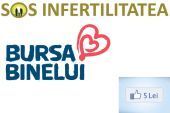

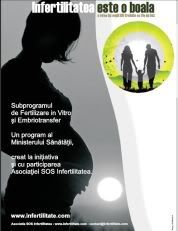
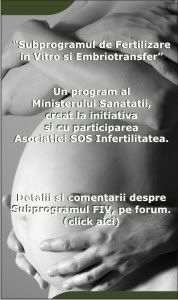
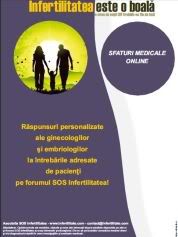
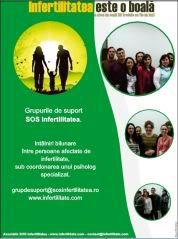
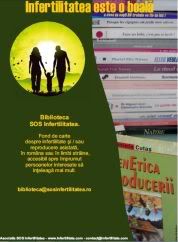
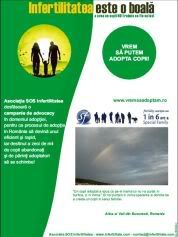
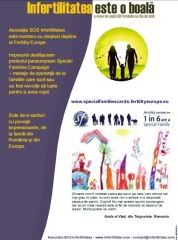
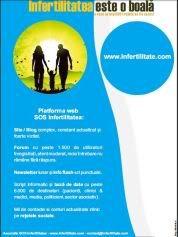



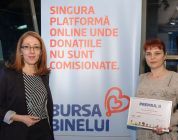
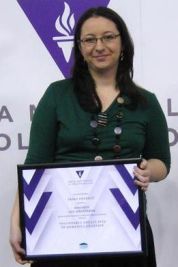
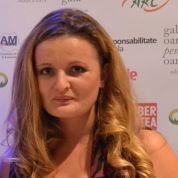



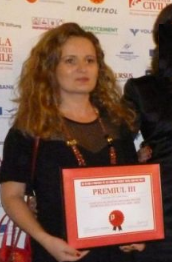

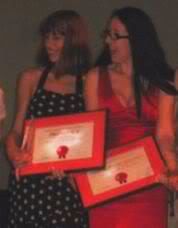

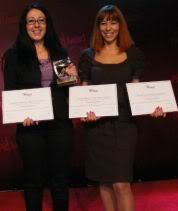
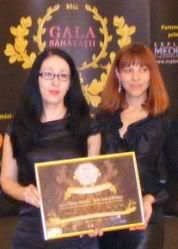
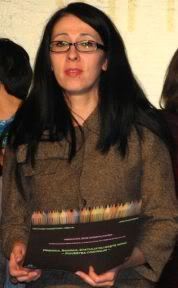

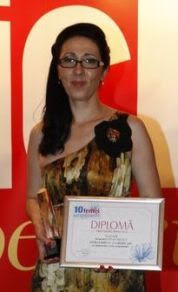

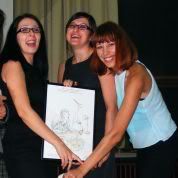
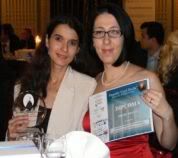
Fertility Clinics really helped a lot in getting my wife to conceive a child. Just make sure you get a reliable one.